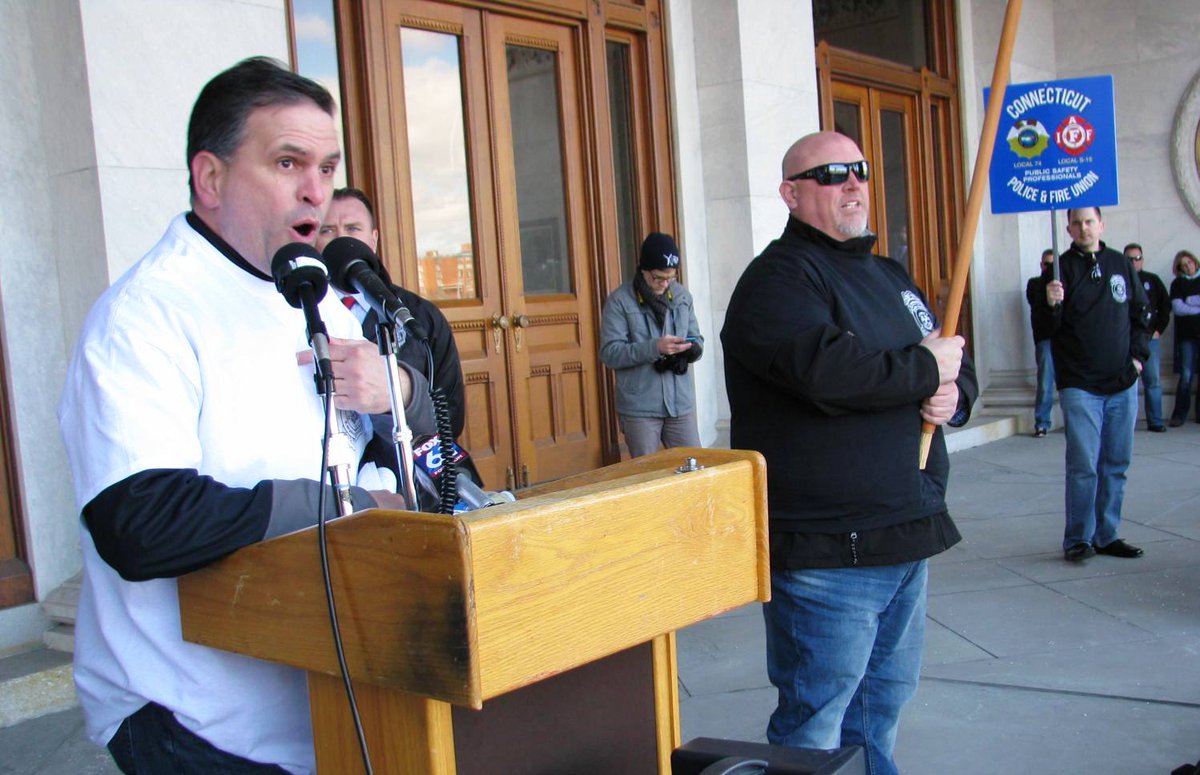In the event of layoffs, unions determine which members are let go based on seniority, but the latest contract for Judicial Employees Local 749 added a new roster of members eligible for “super-seniority” who are immune from layoffs.
Super-seniority grants particular union officials layoff protection even if there are rank and file members with more continuous time on the job.
Under the latest contract negotiated by AFSCME Local 749 President Charles “Chuck” DellaRocco, super-seniority was expanded from just two individuals – the union president and the chief steward – to “a defined number of Executive Board Members.”
According to the contract, no more than 12 members are granted super-seniority.
“For layoff purposes only, the Union President, Chief Steward, Regional Vice Presidents, and a defined number of Executive Board Members shall be granted Superseniority in their current classification,” the Local 749 contracts states.
Local 749’s executive board includes DellaRocco, the union vice-president, seven regional vice-presidents, a secretary-treasurer and recording secretary for a total of 11 members.
The addition of Chief Steward Tony Duarte to the superseniority list rounds out the total number to twelve.
Under the 2017 SEBAC agreement, state employees have layoff protections until June of 2021 but can still be reclassified and transferred to another assignment.
The change specifically affects DellaRocco, a State Supreme Court police officer.
The Judicial Department replaced state police officers at the State Supreme Court with Judicial Marshals represented by another bargaining unit.
Although the Local 749 contract expires in 2021, negotiations between the union and the state can sometimes take years during which the existent contract – and its protections – remain in place, and it is unlikely that number of officials protected by super-seniority would be negotiated downward.
This means if state employees do face layoffs in 2022, the Local 749 executive board will be protected.
The expansion of Local 749’s super-seniority roster has already caused some consternation among members during Local 749’s elections in October.
Jeff Chambers, an investigator with the Hartford Public Defender’s Office, ran against DellaRocco for union president and criticized the expansion of superseniority.
“Apparently, layoff protection till 6/30/2021 was not good enough for them,” Chambers wrote in a campaign letter. “Meanwhile the membership was told to make concessions again to protect their jobs and waited to hear if they would be laid off.”
Local 749 Recording Secretary Kristy Porter fired back at critics of the change.
“If members of the E-Board are laid off first, what happens to other members who are not aware of their rights, and no longer have experienced and knowledgable union representation? What happens if there is no Executive Board to conduct union business on behalf of all our members?” Porter wrote in a letter to members.
Porter also defended the union’s purchase of two Ford Fusions for DellaRocco and Local 749 Vice President Ron Nelson, a juvenile detention officer in Bridgeport.
“Purchasing two bare-bones Ford Fusions for the two people who were doing the most driving throughout the entire state, and are being reimbursed the most mileage, is a cost savings measure for the local,” Porter wrote.
In his own campaign letter, DellaRocco noted that he has “personally visited every location that houses a member of 749 at least twice,” and said the Ford Fusion purchases were a cost-saving measure for the union but did not address the superseniority issue.
A separate email from Sotonye Otunba-Payne also defended the expansion of super-seniority under the new contract, noting that she was not protected by it, but also levelled criticism at Council 4 Executive Director Jody Barr who defeated DellaRocco to become executive director of AFSCME Council 4.
“I refuse to work with an executive director I do not trust at all. And this is putting it mildly. The whole Council 4 affair was an eye-opener. It has left a bitter taste in my mouth,” Otunba-Payne wrote.
DellaRocco was handily defeated by Barr in AFSCME’s May 2018 election but challenged the election process, taking the matter to the U.S. Department of Labor. The DOL ordered a new election to be held for all AFSCME Council 4 executive positions.
The letter from DOL was sent October 29, but Council 4 did not report the results until November 8.
A second election must be completed by April 30, 2019 and will be overseen by DOL.
It is unknown if DellaRocco or Director of Collective Bargaining Kevin Murphy will run for Council 4’s executive director position again.


Joanne Provost
April 16, 2020 @ 1:53 pm
does super seniority for a steward under the layoff clause also grant them seniority for the shifts to be covered during a lay-off/furlough?
I am a union steward for a University in RI. The University is furloughing 39 custodians. I am using the super seniority clause to work with the 12 members needed to cover a 7 day shift, 6am to 2:30pm. I would like to know if I can select a Mon-Fri shift rather than a Sun-Thurs or Tues-Sat shift?